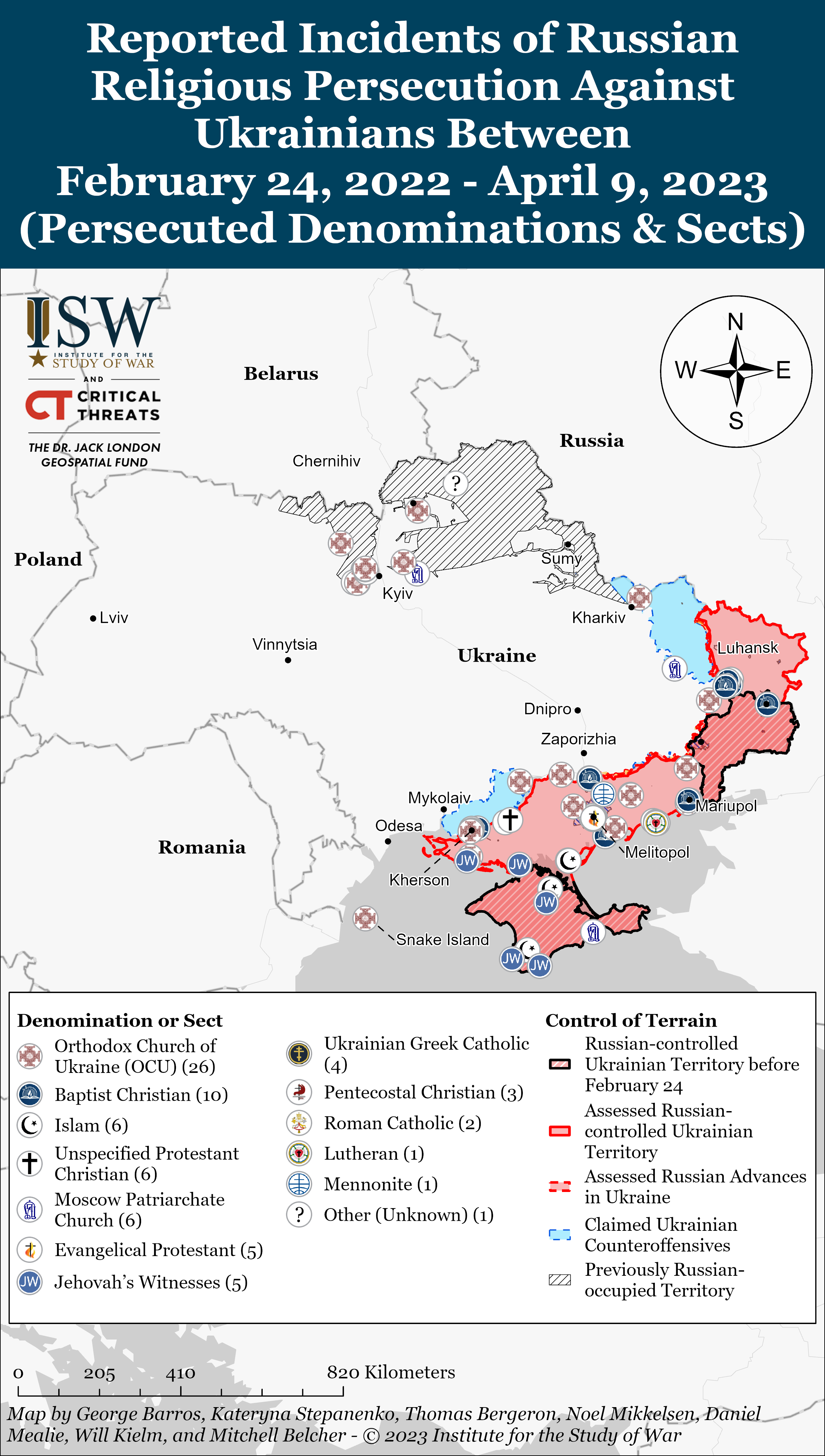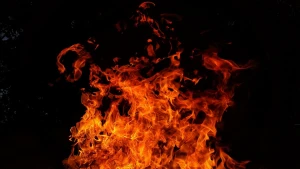
Russia may use Easter to delay AFU counteroffensive – ISW
ISW published a special edition report about Russia's use of religion as a weapon to discredit Ukraine. The enemy arranges reprisals in the temporarily occupied territory
This is reported by the Institute for the Study of War (ISW).
"The Kremlin may call for a ceasefire around Orthodox Easter on April 16 as it did for Orthodox Christmas in January 2023. The Kremlin has selectively called for ceasefires around religious holidays to influence the situation on the frontlines. The Kremlin, for example, refused a ceasefire during Orthodox Easter of 2022” "in order not to give the Kyiv nationalists a break" during the Battle of Mariupol. The Kremlin likely refused a ceasefire because Russian forces still held the initiative on the frontlines at the time, but sought a ceasefire months later over Orthodox Christmas to obtain additional time to prepare Russian forces for the winter offensive," the report says.
Moscow can ask for a ceasefire before Easter, because this will allow the army to secure its gains in Bakhmut and prepare defenses against Ukraine's counteroffensive. The call for "silence" on religious grounds is a subcomponent of the information operation, analysts believe.
"Putin may call for a ceasefire to frame Ukraine as unaccommodating and unwilling to take the necessary steps towards negotiations. A ceasefire on religious grounds additionally reinforces the two-fold Russian information operation that frames Ukraine as suppressing religious groups and positions Putin as the true protector of the Christian faith," says the report.
If Ukraine refuses, then the Kremlin will not thereby demonstrate greater commitment to the protection of Christianity or values and will not show that Kyiv rejects these values: "Putin will merely have demonstrated, once again, his cynicism."
Experts assume that the Russian occupation authorities are conducting a campaign of systematic religious persecution in temporarily occupied Ukraine. Since the beginning of the full-scale invasion, they have committed at least 76 acts of religious persecution.
"Russian authorities have closed, nationalized, or forcefully converted at least 26 places of worship to the Kremlin-controlled Russian Orthodox Church of the Moscow Patriarchate, killed or seized at least 29 clergy or religious leaders, and looted, desecrated, or deliberately destroyed at least 13 places of worship in occupied Ukraine," the analysts write, adding that they do not include indirect fire that could kill religious leaders or destroy buildings.
Russian authorities systematically suppress freedom of religion. Since 2016, Russians have used provisions of the "Yarovaya Law" to prosecute American Baptist and Pentecostal missionaries operating in Russia, and have banned most Mormon missionary activities.
Russia exports its state policy of religious persecution to Ukraine. In 2021, the enemy's Prosecutor General's Office declared four groups of evangelical Christians from Latvia and Ukraine "undesirable" organizations, effectively banning these organizations from the country.
Last year in August, the Russian occupiers in Melitopol raided the home of a Ukrainian evangelical pastor and accused the pastor of ties to the same undesirable organizations that the Russian authorities banned in 2021.
Since 2014, the Russian occupation authorities have been repressing the Ukrainian religious community in the puppet republics in the east of Ukraine and in the illegally occupied Crimea. The former head of the so-called DPR Oleksandr Zakharchenko stated in May 2015 that members of the Orthodox Church of Ukraine (OCU), Greek Catholics and Evangelical Christians are recognized as "sectarians" in the occupied territories.

Key consequences of military operations:
-
Russian sources were outraged by the Russian authorities' accusation of a member of the Union of Donbas Volunteers, Yuri Yevich, of discrediting Russian troops. Russian sources claim that Russian Interior Ministry officials accused Yevich of conducting tactical medicine classes for Rosgvardia employees, during which he negatively portrayed Russian troops in Ukraine.
-
Wagner financier Yevgeny Prigozhin directly criticized the Russian Foreign Ministry’s approach to Russia’s presidency of the United Nations Security Council (UNSC) and offered his own list of agenda items for the UNSC, likely a demonstrative act aimed at supporting his standing in the Russian ultranationalist community and furthering his oblique efforts to portray himself as a suitable president of Russia at some point in the future.
-
Ukrainian Joint Press Center of the Tavriisk Direction Head Colonel Oleksiy Dmytrashkivskyi stated that Russian forces have concentrated 113 battalion tactical groups (BTGs) in the Zaporizhia direction and 205 BTGs in the Donetsk direction.
-
Russian troops conducted limited ground attacks on the line Kupiansk - Svatove - Kreminna.
-
The enemy continues to conduct ground attacks in and around Bakhmut, as well as on the Avdiivka-Donetsk line. Russian forces likely made minor gains south of Bakhmut on April 9.
-
A Russian military blogger claimed that Ukrainian forces conducted a reconnaissance operation in the west of the Zaporizhzhia region.
-
Head of the independent Russian human rights organization “Rus Sidyashchaya” (Russia Behind Bars) Olga Romanova claimed on April 8 that convict recruits have begun signing 18-month contracts with the Russian Ministry of Defense (MoD).
-
Occupation officials are likely to continue using medical resettlement schemes to deport Ukrainian children to Russia.
- News














































